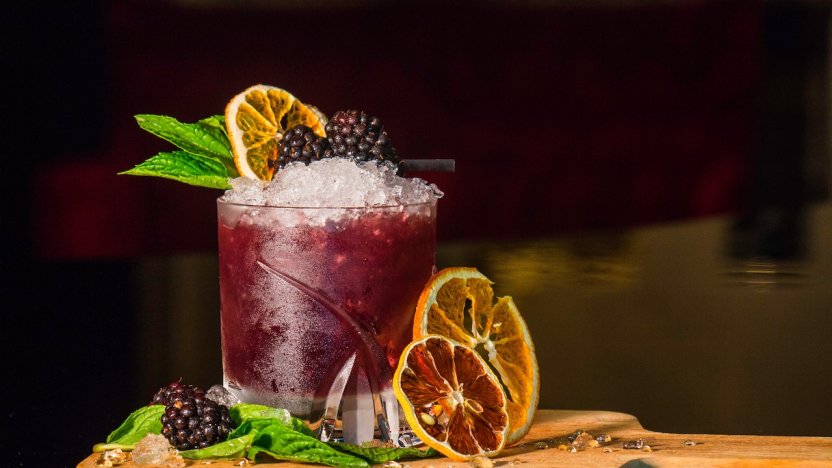Celebrate World Cocktail Day with some IP drinking facts

When you think about cocktails, IP is probably the last thing to come to mind, but what's to stop a mixologist protecting a signature concoction? In celebration of World Cocktail Day on 13 May, we took some time out to investigate the heady mix of booze and IP.
Many classic cocktail combinations are so generic that it’s hard to imagine that they could have once been registered as trademark rights; nonetheless, a number of trademarked mixes do exist – and for good reason.
As far back as the 1960s, a battle was fought over the right to use 'Daiquiri' as the name of a cocktail since it was registered as a trademark for ‘rum’. In the 2000s, the trademark ’China White’ was objected to by the owner of the club of the same name and its eponymous cocktail.
The issue of IP protection in the bartending world became heated again a few years ago when Gosling Brothers Ltd threatened to enforce the trademark for its Dark ‘n Stormy cocktail after a rival drinks company ran an advertisement recommending the use of its own brand of rum in the famous mix.
According to the official website, the Dark ‘n Stormy cocktail is made by mixing 1.5oz (approx 50ml) of Goslings' Black Seal Rum with 4-5oz (120-150ml) of ginger beer and an optional lime wedge garnish. Goslings also sell a premixed ready-to-drink cocktail under the same name. The trademark was important, Goslings argued, because using any other rum in the recipe would significantly affect the taste and leave customers dissatisfied, which would then decrease sales of the cocktail and the rum itself.
An art and a science
To make cocktails, you can’t simply pour random ingredients into a glass. The proper use of unique ingredients, even in classic cocktails, along with the choice of different mixing and pouring techniques, is what makes bartending creative. Experimentation also helps to move mixology forward; for example, by exploring new flavours and texture combinations. From that perspective, imposing IP rights on cocktails could undermine the mixologist’s artistic and creative freedom, argue those opposed to cocktail-based trademark registrations. On the other hand, the basic function of a trademark is to identify the origin of a product, so it would be fair to argue that a consumer would expect a cocktail to contain the same source of ingredients, as well as follow the the same recipe, each time they ordered it.
It’s certainly true that cocktail-making has become something of an art form. Much like famous chefs, bartenders are beginning to receive more recognition internationally and cocktail competitions, many of which are sponsored by famous alcohol brands, are attracting more attention outside the industry too. Given the amount of experience and expertise needed to excel at this level, it’s no wonder that the question of protecting the rights of a cocktail mixologist has started to appear, as well as the almost inevitable conflict with the rights of those brands sponsoring the competitions.
If a mixologist creates a cocktail based on a specific brand, perhaps under the instructions and payment of the brand owner, should they, or others, be allowed to recreate that cocktail using another and perhaps inferior brand? The answer will depend on many factors, including the circumstances under which the cocktail was created and the expectations of the customers buying the cocktail.
Which IP rights apply?
People often think that their cocktail ideas are so original that they warrant patent protection. However, while recipes and mixtures have been granted patent protection in the past, there are a number of requirements that need to be met in order to qualify as a patentable invention. In particular, mixtures need to involve an inventive step (ie not be obvious to other bartenders) and be novel (ie not be previously disclosed), both of which are unlikely to be met in this sector.
Another option would be to claim copyright. However, since copyright applies only to an original creative work that is fixed in a tangible form, it is not possible to copyright a list of ingredients and their proportions. The creator may be able to claim copyright over the menu, but the mixture described in it can be used freely by anyone.
For that reason, trademarks are generally the most favoured IP route for protection; although, it’s important to note that the right protects the name of the drink rather than its recipe or combination of ingredients. In other words, while only the trademark owner will be able to use the name of the cocktail, anyone may be able to use the drink’s recipe (if known); they’ll just need to call it something else. There will also be nothing to stop them from replacing the original branded spirit with another drinks company’s brand, so long as they refer to the cocktail by a different name, which somewhat undermines the Goslings’ intentions when registering the Dark ‘n Stormy trademark in the first place, which was arguably to ensure that its brand of Black Seal Rum was always used in the cocktail.
If a mixologist truly wants to retain the rights to their cocktail recipe, they may want to consider keeping the recipe confidential – in the same way that the KFC and Coca-Cola recipes are guarded to ensure that rival companies can’t copy them exactly, however hard they may try.